Any interest in SKY Warren? Sure fits with Clayton.
How Warren Buffett Would Cash In On Mobile Home Deregulation
Posted: 05/22/2014 9:35 pm EDT Updated: 05/22/2014 9:59 pm EDT

WASHINGTON -- Warren Buffett's Berkshire Hathaway conglomerate owns the two dominant lenders in the mobile home business -- 21st Mortgage Corp., and Vanderbilt Mortgage and Finance Co. Buffett's companies on Thursday manhandled the House Financial Services Committee, securing bipartisan passage of a bill to let them charge borrowers higher fees and interest rates on loans for manufactured housing.
The bill passed along with other deregulation measures that would eliminate many investor protections and allow lenders to charge higher fees on mortgages. Democrats overwhelmingly opposed seven of the bills that would punch loopholes in Securities and Exchange Commission rules requiring firms to disclose business information to their investors. Two more modest measures -- one changing the definition of investment advisors, another requiring an SEC study -- garnered unanimous support.
But the mobile home bill and separate legislation to increase title insurance fees passed with substantial Democratic backing, despite objections from consumer protection advocates and progressive members, including Rep. Keith Ellison (D-Minn.).
The extent of bipartisan support for the consumer bills is unclear, since both passed via voice vote -- meaning there was no official tally of lawmaker positions, giving cover to Democrats who don't want to go on record supporting the bill as it stands. The most prominent Democratic supporter of the mobile home deregulation, Rep. Terri Sewell of Alabama, is working to lower the sky-high interest rates proposed under the version that passed Thursday.
Loans for manufactured housing are tricky for consumer advocates. Traditional mortgages offer buyers of traditional homes the ability to own an asset that may increase in value. That's not the case for the vast majority of manufactured homes, which lose value as soon as they are purchased, much like automobiles. More than 22 million Americans live in manufactured homes, and about 8 million loans are issued each year, most of them short-term. Most loans are for less than $75,000, much lower than the dollar amount for traditional mortgages, resulting in slimmer total profit on interest rates for lenders.
The mobile home bill is not likely to become law. But the mobile home lobby, which includes Buffett's companies, hopes that a bipartisan show of support will pressure the Consumer Financial Protection Bureau to relax its current definition of what constitutes a "high-cost" loan for manufactured housing. Industry experts say it's unprofitable to issue loans deemed "high-cost," because they carry a stigma and include requirements like mandatory borrower counseling from independent experts.
Dodd-Frank allowed the CFPB to write rules setting "high-cost" loan standards, and the agency currently includes loans with an interest rate 8.5 percentage points higher than the prime rate. The bill approved by committee on Thursday would set the rate at 12.5 percentage points over prime for some loans, and give the CFPB the authority to boost it as high as 14.5 percent -- unlikely under the current administration, but plausible under a Republican-appointed CFPB director. Higher interest rates would mean bigger profits for mobile home lenders. The prime rate on traditional mortgages is currently about 3.25 percent.
The mobile home lending lobby, led by the Manufactured Housing Institute (Buffett companies 21st Mortgage and Clayton Homes, which owns Vanderbilt, serve on its board), said the industry has been unable to make many loans since the new Dodd-Frank rules went into effect in January. The CFPB has been seeking market data from the mobile home industry since 2011, and Ellison offered an amendment on Thursday requiring the CFPB to conduct a study on access to credit in the industry, which was rejected by a voice vote.
“This legislation would ensure that manufactured housing remains a viable affordable housing option, particularly in rural, distressed and underserved areas," Nathan Smith, chair of Manufactured Housing Institute, said in a press release applauding passage of the bill.
Reps. David Scott (D-Ga.), Gary Peters (D-Mich.), Betty McCollum (D-Minn), Greg Meeks (D-N.Y.) and Michael Doyle (D-Pa.) and five Republicans introduced a bill that would allow mortgage brokers and title insurance companies to charge borrowers higher fees, and still qualify for perks in the securitization market. The 2010 Dodd-Frank bank reform law established a new rules making it easier and more profitable to sell high-quality, low-risk mortgages to investors. The rules cap the total fees that lenders can charge borrowers at 3 percent of the loan value. But a bill passed Thursday would exclude some charges for title insurance from this limit.
The National Consumer Law Center said the bill "leaves the door open for abuses that were typical in the recent subprime crisis." The bill passed by a voice vote.
Ellison, who did not support the overall bill, presented amendments to ban kickback payments from mortgage brokers to title insurance companies and to strengthen judicial review of the process. Both were thrown out without a vote by Committee Chair Jeb Hensarling (R-Texas).
The bills will now go to the House floor, where the Republican majority has the votes to secure passage. The Democratic Senate is unlikely to bring them up, although both chambers approved legislation deregulating SEC investor disclosure requirements was approved in 2012 with support from President Barack Obama.
huffingtonpost.com |





